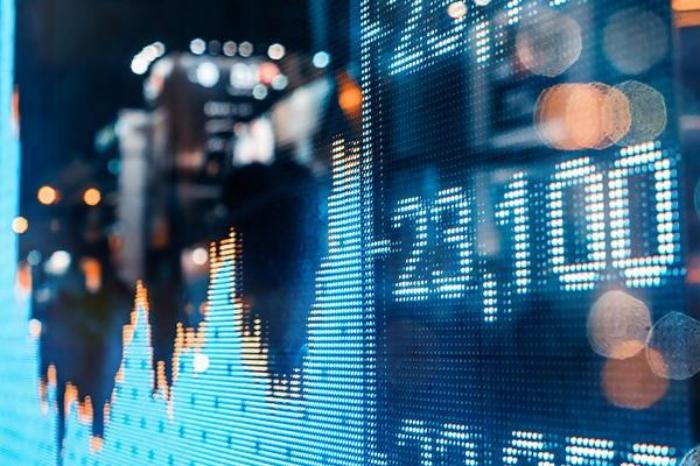Gold futures are an essential investment tool for many traders and investors. Interactive Brokers (IBKR) offers a platform for trading gold futures that is robust and user-friendly. This article explores the features, benefits, and strategies involved in trading gold futures through Interactive Brokers.
What Are Gold Futures?
Gold futures are contracts to buy or sell gold at a predetermined price on a specific date in the future. They are a way for investors to speculate on the price of gold without having to physically hold the asset. Futures contracts allow traders to benefit from price movements, whether upward or downward.
Gold futures are traded on exchanges like the COMEX, a division of the New York Mercantile Exchange. These contracts are standardized, meaning they have specific terms regarding the amount of gold, quality, and settlement.
Why Trade Gold Futures?
Investing in gold futures offers several advantages:
Leverage: Futures trading allows investors to control a large amount of gold with a relatively small initial investment. This can amplify potential returns.
Liquidity: Gold futures are highly liquid. This means that traders can buy and sell contracts quickly without affecting the market price.
Diversification: Gold serves as a hedge against inflation and currency fluctuations. By including gold futures in a portfolio, investors can diversify their holdings.
Market Access: Trading gold futures through Interactive Brokers provides access to global markets, making it easier to respond to changes in gold prices.
Features of Interactive Brokers Gold Futures
Interactive Brokers offers a comprehensive platform for trading gold futures. Here are some key features:
User-Friendly Interface
The trading platform is designed to be intuitive, allowing both novice and experienced traders to navigate easily. Users can quickly access market data, charts, and order entry features.
Advanced Trading Tools
Interactive Brokers provides various tools to enhance trading strategies. These include:
Real-Time Data: Access to real-time pricing data allows traders to make informed decisions.
Charting Tools: Advanced charting features help users analyze price trends and patterns.
Risk Management Tools: Traders can set stop-loss orders to manage risk effectively.
Low Commissions and Fees
Interactive Brokers is known for its low commission rates. This makes it a cost-effective option for trading gold futures, especially for active traders who make frequent trades.
Educational Resources
The platform offers extensive educational resources, including webinars, articles, and tutorials. These resources help traders understand the intricacies of futures trading and develop effective strategies.
How to Trade Gold Futures on Interactive Brokers
Trading gold futures on Interactive Brokers involves several steps:
Open an Account: Start by opening an account with Interactive Brokers. This process involves providing personal information and financial details.
Fund Your Account: After account approval, deposit funds to trade. Ensure you meet the minimum margin requirements for futures trading.
Select Gold Futures: Use the platform to find gold futures contracts. Choose the contract that fits your trading strategy.
Analyze the Market: Utilize the platform’s tools to analyze market trends. Look at historical data, charts, and news that may affect gold prices.
Place an Order: Once you’ve analyzed the market, place your order. You can choose between market orders, limit orders, and stop orders, depending on your strategy.
Monitor Your Position: After placing your order, monitor your position closely. Keep an eye on price movements and news that could impact gold prices.
Close Your Position: When you reach your target or if the market moves against you, close your position. You can either sell your contract or let it settle at expiration.
Strategies for Trading Gold Futures
Investors can employ various strategies when trading gold futures:
Hedging
Many businesses and investors use gold futures to hedge against price fluctuations. For example, a jeweler might sell gold futures to lock in prices before purchasing physical gold. This protects them from rising gold prices.
Speculation
Traders can speculate on gold price movements to profit. This involves predicting whether gold prices will rise or fall. Traders may use technical analysis or fundamental analysis to guide their decisions.
Spread Trading
Spread trading involves taking opposite positions in different futures contracts. For example, a trader might buy a near-term gold futures contract and sell a long-term contract. This strategy can minimize risk while allowing for profit.
Understanding Risks in Gold Futures Trading
While trading gold futures offers many benefits, it also comes with risks:
Market Volatility: Gold prices can be volatile, leading to potential losses. Traders must be prepared for rapid price changes.
Leverage Risk: Using leverage can amplify gains, but it also increases potential losses. Traders should manage their leverage carefully.
Margin Calls: If the market moves against a trader’s position, they may receive a margin call. This requires the trader to deposit additional funds to maintain their position.
Expiration Risks: Futures contracts have expiration dates. If a trader holds a contract until expiration, they may face delivery obligations, unless they close their position beforehand.
See also: How To Trade Gold Futures On thinkorswim
Conclusion
Interactive Brokers provides a robust platform for trading gold futures, combining advanced trading tools with low costs and educational resources. Understanding how to trade gold futures can enhance an investment strategy, allowing traders to capitalize on gold price movements.
However, it’s crucial to be aware of the risks involved in futures trading. By employing sound strategies and effective risk management, investors can navigate the complexities of gold futures trading and potentially achieve significant returns. As the market continues to evolve, staying informed and adaptable will be key to success in trading gold futures through Interactive Brokers.
Related topics:

